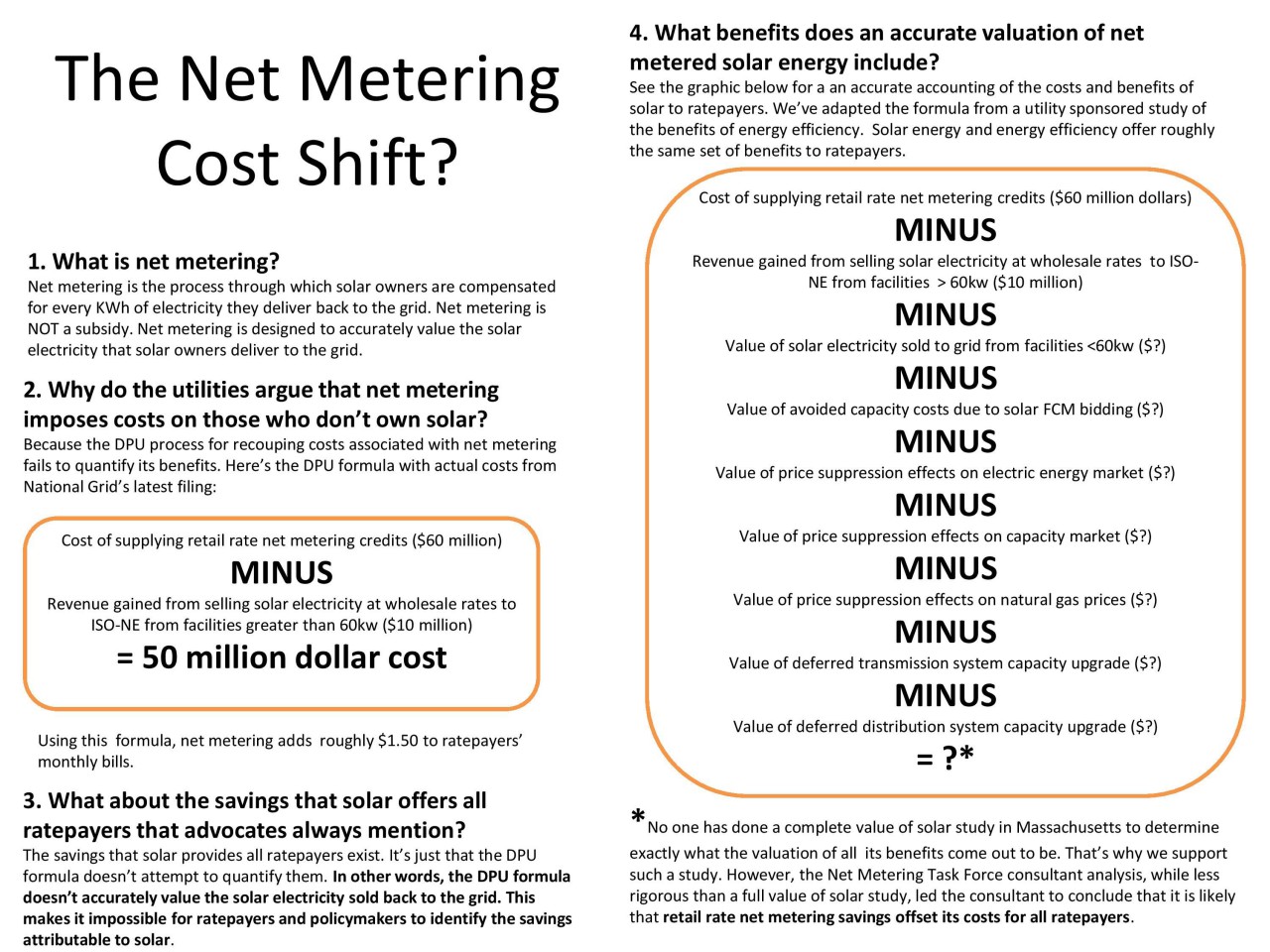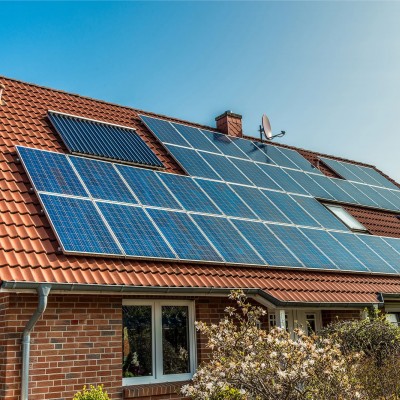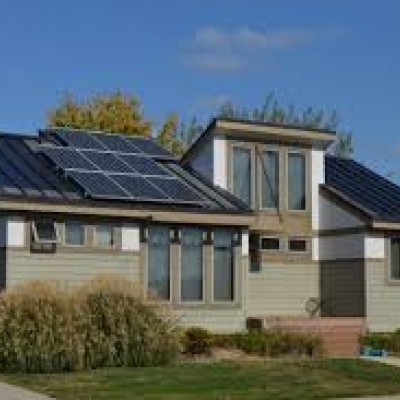Does net metering shift costs?
Utilities and other anti-solar forces are fond of the claim that net metering shifts costs between solar users and non-solar users. The gist of this claim is that solar users are freeriding and not paying their fair share of distribution system costs, relying on non-solar electricity users to pick up their tab. Is there any turth to this claim?
An ever growing body of research says no. A report released last summer by the Environment America Research & Policy Center shows that when people put solar panels on their rooftops and in their neighborhoods through programs like net-metering, they reduce the strain on our electric grid, lower prices for all electric customers, and cut pollution to boot (read more here). The report details the results of 11 studies looking into the net metering cost shift issue. Of the 11 net metering studies reviewed, eight found that the value of solar energy was higher than the average local residential retail electricity rate; the three that didn't were conducted by utilities.
In Massachusetts, similar analyses has yielded similar results. A value of solar study released by the Acadia Center in 2015 determined the value of solar electricity exported to the grid to be 22-28 cents per kWh, which is higher than average retail electricity rates in Massachusetts. The study also found additional value for solar's environmental and societal benefits on the order of 6.7 cents per kWh. All of this is good news for solar and ratepayers in general but it's a fact that is often lost in the political battles around net metering caps and solar policy in general.

In talking with legislators and others about the issue of cost shifting and how solar should be valued, the above is useful. It outlines (in a somewhat technical manner) how the costs as well of the benefits of solar should be taken into account when it comes to determined fair payment for solar and whether a cost shift between non-solar and solar ratepayers is taking place.
Download a PDF here.


